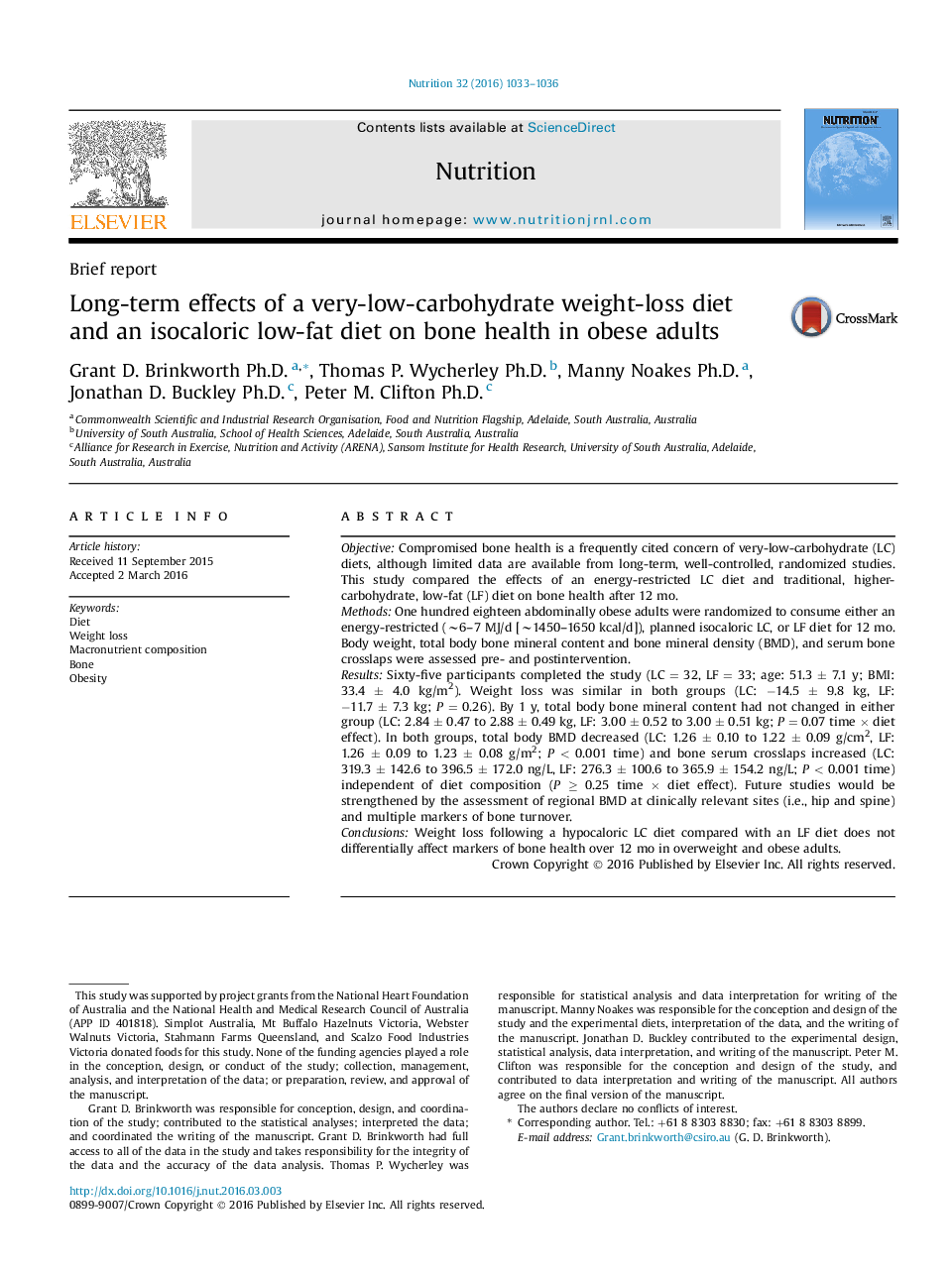| Article ID | Journal | Published Year | Pages | File Type |
|---|---|---|---|---|
| 3276108 | Nutrition | 2016 | 4 Pages |
ObjectiveCompromised bone health is a frequently cited concern of very-low-carbohydrate (LC) diets, although limited data are available from long-term, well-controlled, randomized studies. This study compared the effects of an energy-restricted LC diet and traditional, higher-carbohydrate, low-fat (LF) diet on bone health after 12 mo.MethodsOne hundred eighteen abdominally obese adults were randomized to consume either an energy-restricted (∼6–7 MJ/d [∼1450–1650 kcal/d]), planned isocaloric LC, or LF diet for 12 mo. Body weight, total body bone mineral content and bone mineral density (BMD), and serum bone crosslaps were assessed pre- and postintervention.ResultsSixty-five participants completed the study (LC = 32, LF = 33; age: 51.3 ± 7.1 y; BMI: 33.4 ± 4.0 kg/m2). Weight loss was similar in both groups (LC: −14.5 ± 9.8 kg, LF: −11.7 ± 7.3 kg; P = 0.26). By 1 y, total body bone mineral content had not changed in either group (LC: 2.84 ± 0.47 to 2.88 ± 0.49 kg, LF: 3.00 ± 0.52 to 3.00 ± 0.51 kg; P = 0.07 time × diet effect). In both groups, total body BMD decreased (LC: 1.26 ± 0.10 to 1.22 ± 0.09 g/cm2, LF: 1.26 ± 0.09 to 1.23 ± 0.08 g/m2; P < 0.001 time) and bone serum crosslaps increased (LC: 319.3 ± 142.6 to 396.5 ± 172.0 ng/L, LF: 276.3 ± 100.6 to 365.9 ± 154.2 ng/L; P < 0.001 time) independent of diet composition (P ≥ 0.25 time × diet effect). Future studies would be strengthened by the assessment of regional BMD at clinically relevant sites (i.e., hip and spine) and multiple markers of bone turnover.ConclusionsWeight loss following a hypocaloric LC diet compared with an LF diet does not differentially affect markers of bone health over 12 mo in overweight and obese adults.
